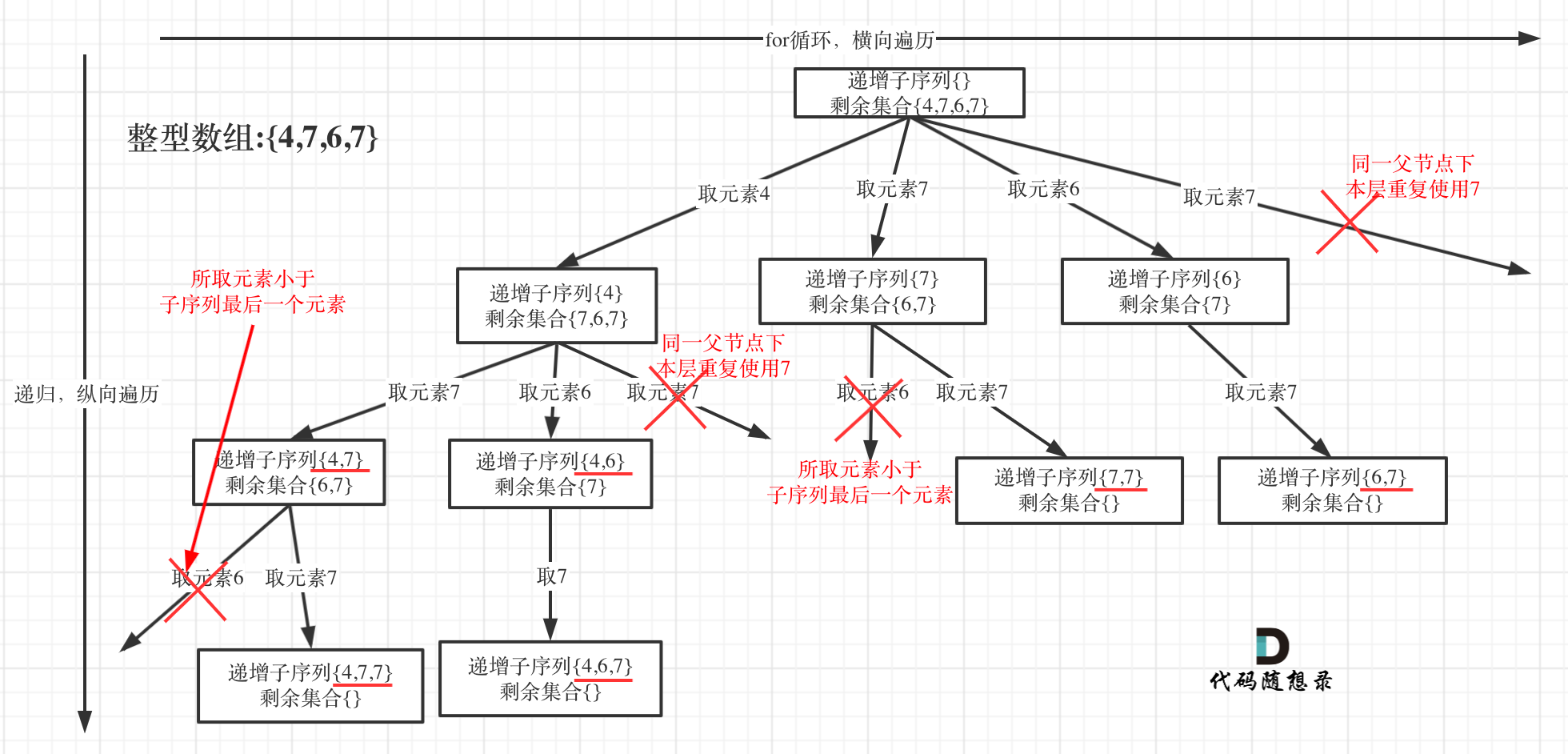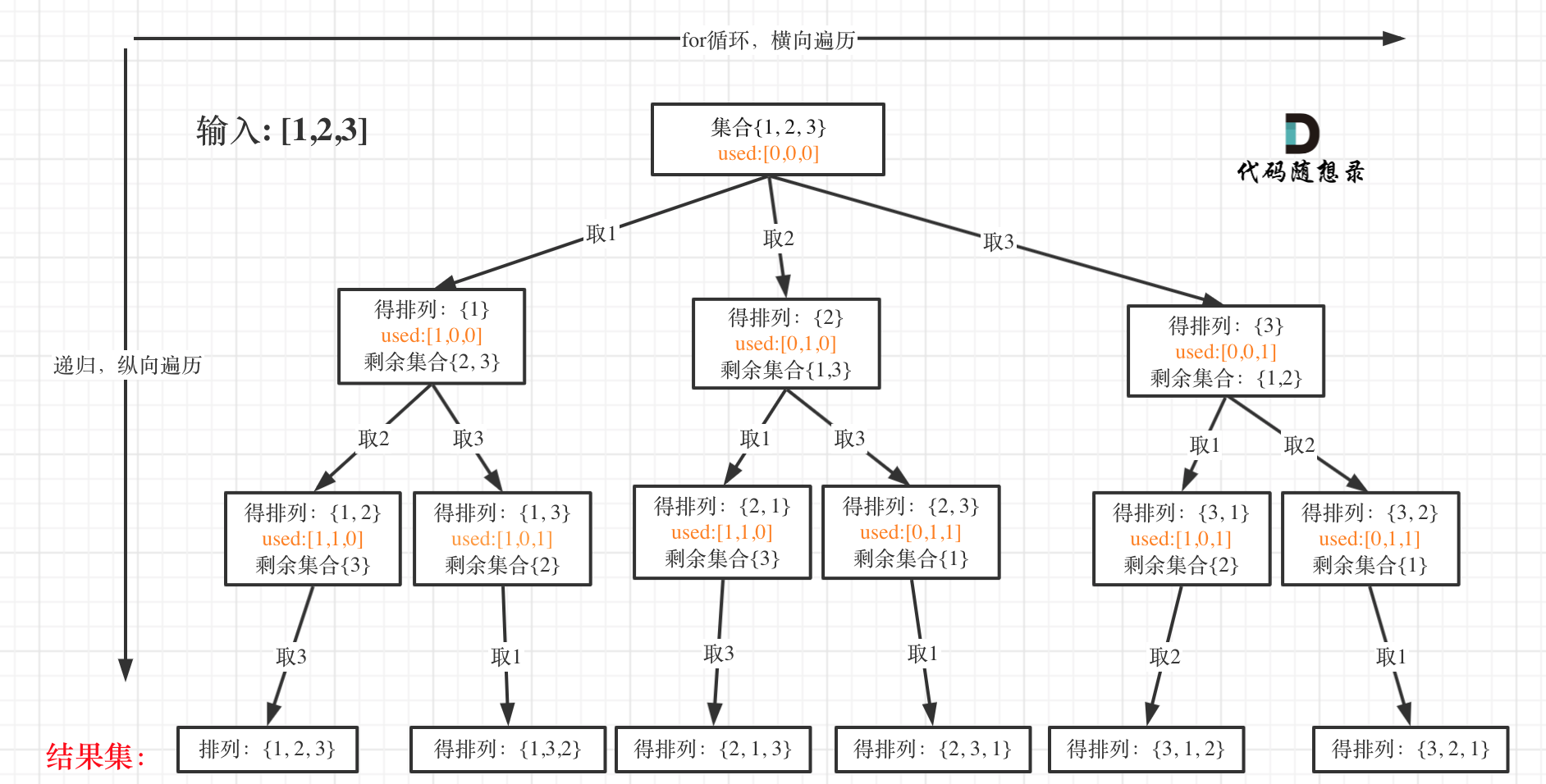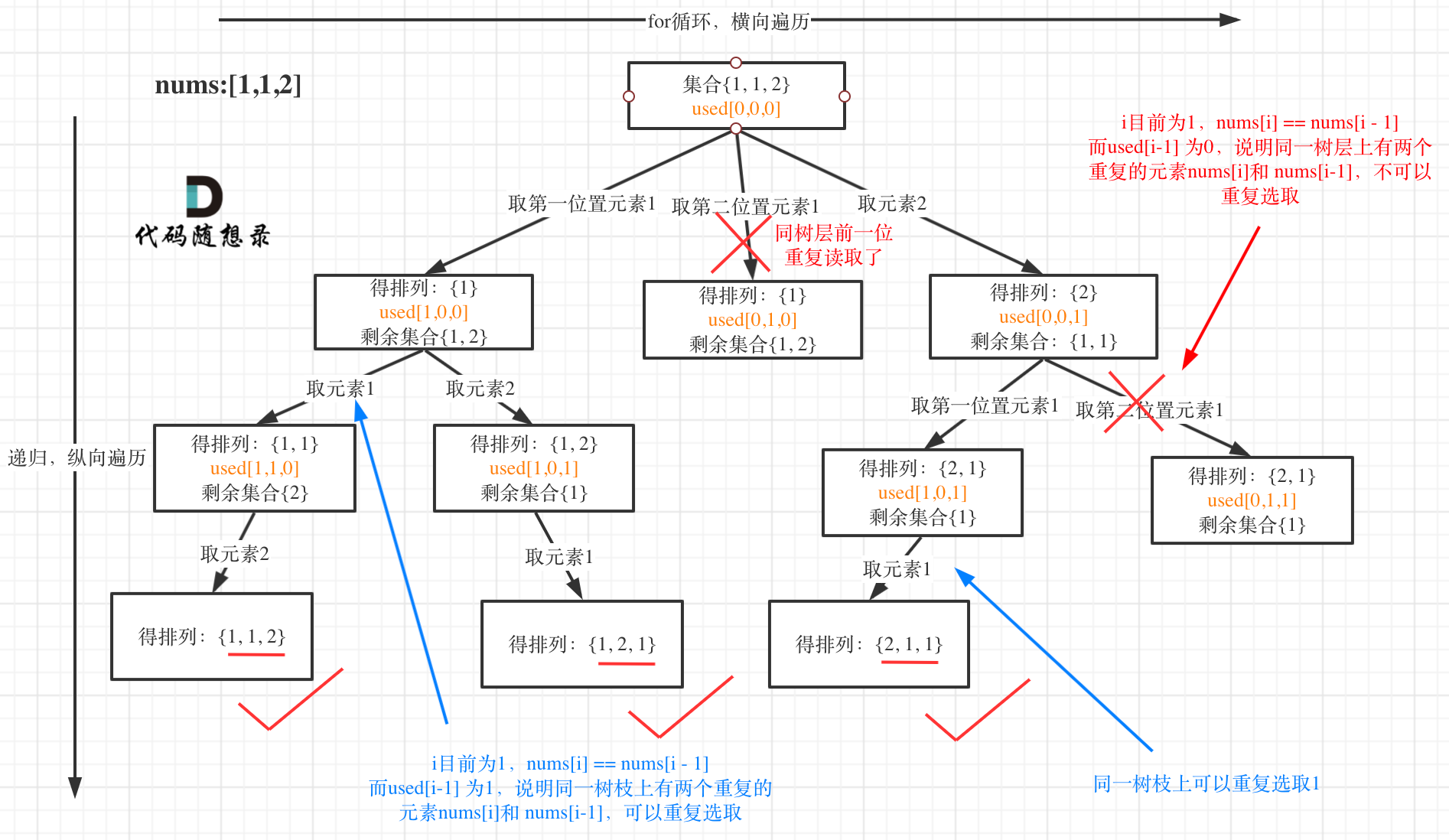给定一个整型数组, 你的任务是找到所有该数组的递增子序列,递增子序列的长度至少是2。
示例:
- 输入: [4, 6, 7, 7]
- 输出: [[4, 6], [4, 7], [4, 6, 7], [4, 6, 7, 7], [6, 7], [6, 7, 7], [7,7], [4,7,7]]
说明:
- 给定数组的长度不会超过15。
- 数组中的整数范围是 [-100,100]。
- 给定数组中可能包含重复数字,相等的数字应该被视为递增的一种情况

class Solution { public List<List<Integer>> findSubsequences(int[] nums) { List<List<Integer>> res = new ArrayList<>(); helper(nums, res, new ArrayList<>(), 0); return res; } private void helper(int[] nums, List<List<Integer>> res, List<Integer> cur, int idx) { if (cur.size() > 1) res.add(new ArrayList<>(cur)); int[] used = new int[201]; for (int i = idx; i < nums.length; i++) { if (!cur.isEmpty() && nums[i] < cur.get(cur.size() - 1) || (used[nums[i] + 100] == 1)) continue; used[nums[i] + 100] = 1; cur.add(nums[i]); helper(nums, res, cur, i + 1); cur.remove(cur.size() - 1); } } }
46. 全排
给定一个不含重复数字的数组 nums ,返回其 所有可能的全排列 。你可以 按任意顺序 返回答案。
输入:nums = [1,2,3]
输出:[[1,2,3],[1,3,2],[2,1,3],[2,3,1],[3,1,2],[3,2,1]]

class Solution { public List<List<Integer>> permute(int[] nums) { List<List<Integer>> result = new ArrayList<>(); helper(result, new ArrayList<>(),nums); return result; } private void helper(List<List<Integer>> result, List<Integer> path, int[] nums) { if (path.size() == nums.length) { result.add(new ArrayList<>(path)); } for (int i = 0;i < nums.length; i++) { if (path.contains(nums[i])) { continue; } path.add(nums[i]); helper(result, path, nums); path.remove(path.size() - 1); } } }
47.全排列 II
给定一个可包含重复数字的序列 nums ,按任意顺序 返回所有不重复的全排列。
示例 1:
- 输入:nums = [1,1,2]
- 输出: [[1,1,2], [1,2,1], [2,1,1]]
示例 2:
- 输入:nums = [1,2,3]
- 输出:[[1,2,3],[1,3,2],[2,1,3],[2,3,1],[3,1,2],[3,2,1]]
提示:
- 1 <= nums.length <= 8
- -10 <= nums[i] <= 10

class Solution { public List<List<Integer>> permuteUnique(int[] nums) { List<List<Integer>> result = new ArrayList<>(); Arrays.sort(nums); boolean[] used = new boolean[nums.length]; Arrays.fill(used, false); helper(nums, used, result, new ArrayList<>()); return result; } private void helper(int[] nums, boolean[] used, List<List<Integer>> result, List<Integer> path) { if (path.size() == nums.length) { result.add(new ArrayList<>(path)); return; } for (int i = 0; i < nums.length; i++) { if (i > 0 && nums[i] == nums[i - 1] && used[i - 1] == false) { continue; } if (used[i] == false) { used[i] = true; path.add(nums[i]); helper(nums, used, result, path); path.remove(path.size() - 1); used[i] = false; } } } }